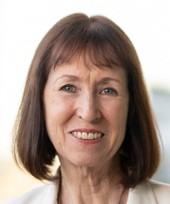Welcome to the October eNewsletter of TERN, which publishes just as we put final touches on preparations for the TERN Advisory Board’s meeting on 4 November and TERN’s annual strategic planning workshop on 5 November – both to be held in Adelaide, South Australia and online. In addition to Advisory Board members, others attending are the Science Advisory Committee, TERN Executive Group, TERN Regional Ambassadors and our Honorary Fellows. Even with travel restrictions related to COVID-19 starting to relax, the event is of necessity a hybrid delivery since some areas of Australia are still not allowed to cross State borders. Those of us who can travel are looking forward to once again seeing the real faces of colleagues. Somehow, I think networking at the breaks and meal-times is going to be the most popular activity in the program.
There will be a couple of new faces at the governance meetings in Adelaide. We will be welcoming Professor Michael Goodsite as the University of Adelaide’s representative to the Advisory Board. Mike is known as a visionary leader with a broad scientific and engineering background, and strong environmental interests. He is currently the Director of the University of Adelaide’s Institute for Mineral and Energy Resources (IMER). Mike is replacing Professor Andy Lowe, who was the University of Adelaide’s representative on the TERN Advisory Board since 2017 and has left to re-engage more actively in ecosystem science research – thanks Andy for your long-term contributions.
The other new person to TERN’s governance structure is Mr Jim Walker, who is joining TERN’s independent Science Advisory Committee. Jim is of the Yiman, Goreng Goreng and Jagera First Nations Peoples of Australia. Jim has extensive high-level experience in engaging with Aboriginal and Torres Strait Islander organisations and communities across Australia. Since 2018, Jim has been teaching and incorporating traditional knowledge into the curriculum of several degrees within the Faculty of Science at The University of Queensland (UQ), including Cultural Heritage Management. TERN is looking forward to Jim’s guidance on how to work alongside Indigenous peoples to achieve a national collective database describing the health of Australia’s regional and remote ecosystems. On a more regretful note, the Adelaide Strategic Planning workshop event marks the end of Professor Jenny Davis’s term on the Science Advisory Committee. Jenny (Charles Darwin University) has been the voice on the committee since 2017 for the role of freshwater ecosystems in the Australian landscape. We will miss her wealth of knowledge and generous contribution to TERN – thanks Jenny from all of us.
There is growing excitement, trepidation and expectation in our research infrastructure community that we are perhaps only days to weeks away from being invited to comment on the exposure draft of Australia’s 2021 Roadmap of National Research Infrastructure for 2023-2028. We are trying to imagine and anticipate how the Roadmap’s Expert Working Group has come through the challenge of identifying and prioritising research areas with the greatest need for support from research infrastructure at a national scale when there is a multitude of existing domains, including health, agriculture, environment, energy, minerals and resources, cybersecurity, social sciences, space and astronomy, imaging, materials and so on, and a raft of emerging research disciplines that will shortly be seen as priorities for Australia’s future. We hope that the new Roadmap will anticipate the complex needs of researchers working towards a better understanding of water, soils, biodiversity, greenhouse gases and similar environmental and land use topics. And while we wait to find out – we wish you all happy reading of our October newsletter.







